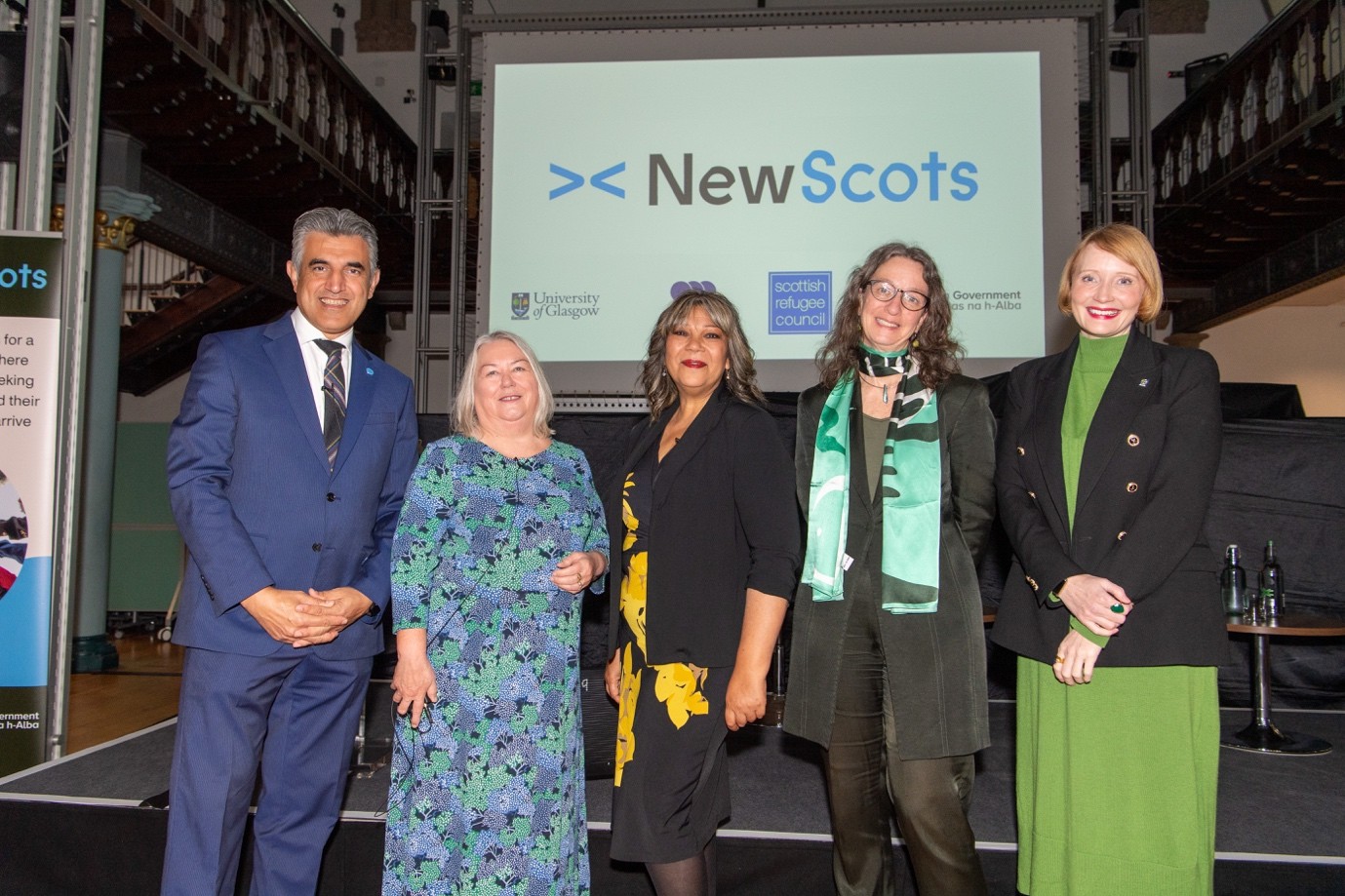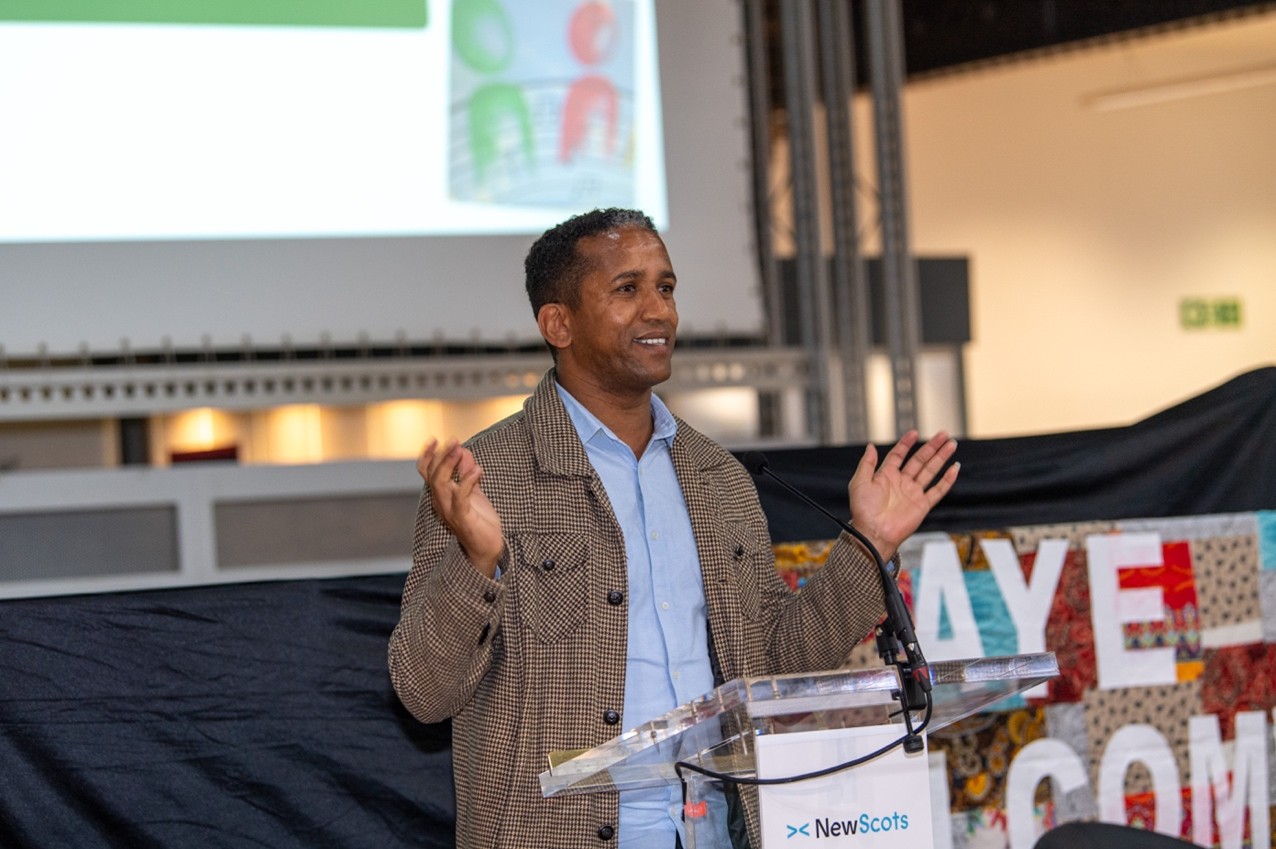Refugee Integration in Scotland – A Catalyst for Policy Change
Published by Alison Phipps
The research into refugee integration in Scotland was led by a dedicated team of scholars: Prof Alison Phipps, Dr Dan Fisher, and Dr Esa Aldegeheri. The study, which culminated in the Refugee Integration Research Report, aimed to explore the challenges and opportunities refugees face when integrating into Scottish society. It focused on key aspects of integration, such as access to housing, employment, education, and healthcare, as well as the importance of community support networks.
A £6.5 million commitment was announced as part of the strategy, specifically earmarked for New Scots projects that will deliver practical services and support for refugees across the country. These funds will enable a range of initiatives, from employment and language training to mental health services, creating tangible, long-term improvements in the lives of refugees.
The strategy was officially launched at the University of Glasgow in August 2024, in an event attended by key stakeholders, including the Minister for Equalities. The event underscored the Scottish Government’s commitment to refugee integration and highlighted the collaborative efforts of academic researchers, community leaders, and policymakers in shaping this transformative policy.
As a result of this research, refugees in Scotland will benefit from more tailored, nation-wide supportive integration services, leading to greater opportunities for social, economic, and cultural participation. The broader Scottish public will also gain from a more inclusive and diverse society, where refugees are able to contribute their skills, talents, and perspectives.
Underpinning Research/Study and Its Collaborators and Partners
The research into refugee integration in Scotland was led by a dedicated team of scholars: Prof Alison Phipps, Dr Dan Fisher, and Dr Esa Aldegeheri. The study, which culminated in the Refugee Integration Research Report, aimed to explore the challenges and opportunities refugees face when integrating into Scottish society. It focused on restorative aspects of integration, such as access to housing, employment, education, and healthcare, as well as the importance of community support networks.
The research was a collaborative effort involving academic institutions, community organizations, and refugee advocacy groups. The team worked closely with local authorities, policymakers, and refugee support organizations to ensure that the findings were grounded in the lived experiences of refugees and informed by those directly involved in integration efforts.
Knowledge Exchange and Engagement Activities
To ensure that the research had a far-reaching impact, the team engaged in a range of knowledge exchange and dissemination activities:
Community Engagement: The research team hosted workshops and focus groups with refugees, community members, local authorities, and service providers. This helped to ensure that the voices of refugees were at the heart of the study and that the findings reflected their lived experiences.
Policy Briefs and Reports: The findings were distilled into clear, actionable recommendations which were shared widely through policy briefs, presentations, and academic publications.
Public Events: The team participated in public discussions and seminars to raise awareness about the findings, with a particular emphasis on how Scotland could better support refugees in their integration journey.
Consultations with Policymakers: Key findings were presented to the Scottish Government and other relevant stakeholders, influencing the development of Scotland’s long-term refugee integration strategy.

Summary of What Has Changed and for Whom as a Result of This Research, Engagement, and Knowledge Exchange
The research had a significant and lasting impact on refugee integration policy in Scotland. One of the most notable outcomes was the launch of the New Scots Refugee Integration Strategy and Delivery Plan in August 2024, a groundbreaking human rights-based policy initiative designed to improve the integration of refugees into Scottish society.
The New Scots Strategy, developed with direct input from the research team and shaped by their findings, seeks to create a more cohesive, inclusive environment for refugees in Scotland. The strategy is underpinned by the following key areas of focus:
• Access to Services: Improving refugees' access to essential services such as housing, healthcare, education, and employment opportunities.
• Community and Social Integration: Promoting restorative and intercultural community community cohesion through initiatives that foster mutual understanding, multilingualism and integration between refugees and local communities.
• Support Networks: Strengthening the networks of mutual aid and resourcefulness that provide social support and guidance to refugees, helping them to navigate their new lives in Scotland.
The strategy was officially launched at the University of Glasgow in August 2024, in an event attended by key stakeholders, including the Minister for Equalities. The event underscored the Scottish Government’s commitment to refugee integration and highlighted the collaborative efforts of academic researchers, community leaders, and policymakers in shaping this transformative policy.
As a result of this research, refugees in Scotland will benefit from more tailored, nation-wide supportive integration services, leading to greater opportunities for social, economic, and cultural participation. The broader Scottish public will also gain from a more inclusive and diverse society, where refugees are able to contribute their skills, talents, and perspectives.

Minister for Equalities at the launch of the New Scots Refugee Integration Strategy, University of Glasgow, August 2024

